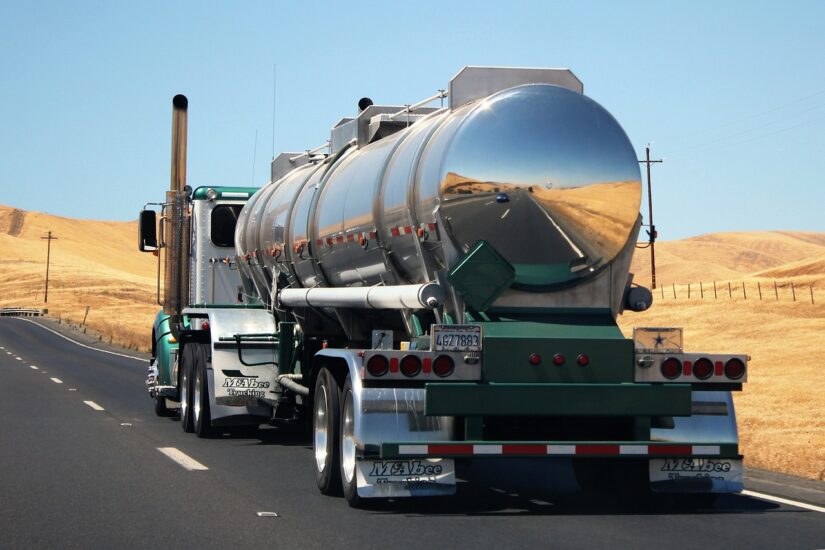If you own a small trucking company, you know that there are many permits you must obtain in order to operate legally. Simplex Group has been helping small trucking companies with compliance, permits, insurance, and taxes for over 20 years. We will make sure that your company has all of the permits it needs to operate legally. We are committed to your success.
You already know that intrastate and interstate trucking companies need U.S. Department of Transportation numbers. Before you fill out our contact form, you may want to familiarize yourself with all the different permits you will need to run a trucking company in New Jersey.

Oversized Load Permits New Jersey
It is important to get a wide load permit if you intend to drive a truck over the length, weight, or height normally permitted on the highway. Although the New Jersey Motor Vehicle Commission oversees oversized permits, the New Jersey Department of Transportation (NJDOT) issues permits on the MVC’s behalf. Trucking companies use the SUPERLOAD system.
An oversized load is considered to be a truck that has a width of 8 feet 6 inches or more, a height of 13 feet 6 inches, or a semi-trailer length of 53 feet. If a truck weighs over 80,000 pounds, it will also be considered oversized.
The type of permit you need may be affected by how the weight is distributed. Depending on the roads you wish to take and the materials you are carrying, you may be required to drive at certain times of the day. You will not be able to operate oversized loads on major holidays.
You may have to travel on designated roads or even obtain a special clearance for overheight or overwidth vehicles. When you operate an oversized vehicle, you are likely to need escort vehicles. You will also need to put up signs and lights.
It is always important to obey local laws and take the safety of the local community into consideration.
Simplex Group provides you with professional advice regarding oversized permits and escort requirements. We will request your permits well in advance and make sure you have any signs required.
Turnpike Authority
The New Jersey Turnpike is a system of highways that is overseen by the New Jersey turnpike authority. It provides a way for vehicles traveling from New York to Washington to surpass the state of Pennsylvania entirely.
Although it makes traveling between New York and Washington faster, commercial trucks are not allowed to use the New Jersey Turnpike unless the truck has a special license to cross from the NJ Turnpike Authority.
A trucking company must establish a reason for traveling on the turnpike, such as road construction. They would have to apply well in advance of the trip.

New York Highway Use Tax Permit
It would be awfully hard to run a trucking company out of New Jersey without ever taking a load into New York. The Empire State requires vehicles that weigh over 18,000 pounds to pay a highway use tax and to display a Highway Use Tax sticker on their trucks. The amount of money you pay will depend on the size of your load and the manner in which you file your taxes.
How We Can Help
There are a few ways to get from New Jersey to NYC. You can travel over one of several bridges, or you can take State Route 27. Route and load planning are very important when it comes to traveling in New York. If you do not plan carefully, it will cost you. For example, The George Washington Bridge connects New York City to New Jersey. 300,000 vehicles travel across this bridge every day. Trucks are only allowed on the upper deck of the GW bridge.
You should only drive over the bridge with a trailer that is under 48 feet because trucks that are over 53 feet are not allowed in New York City. You will have to pay special tolls when you travel across this bridge, and many trucking companies tend to avoid it.
Simplex Group can assist you with planning your loads and filing your taxes. Our agents will do everything they can to save you money.
Interstate Driving Permits
There are certain permits that all interstate truck drivers should have to operate a successful trucking company.

IFTA (International Fuel Tax Agreement)
The IFTA is a trucking license available to all interstate truck drivers. When a truck driver travels through any state, they must pay taxes on the fuel that they purchase in that state. A state is entitled to collect taxes for the truck fuel that it sells.
Truckers used to have to obtain an individual fuel tax permit from each state in order to purchase fuel and pay taxes on that fuel. This was very time-consuming and created too much paperwork.
In 1983 the International Fuel Tax Agreement was created by the United States Congress. Truckers are issued one license by the IFTA office in their state. The license functions as a tax permit in every state.
Truckers will use their electronic logging device to record the amount of fuel they have purchased and the number of miles they have traveled in each state. Trucking companies file a quarterly tax report to the IFTA office in their own state. The IFTA office distributes the tax funds to the appropriate states and issues tax returns to trucking companies that are owed a refund.
Unified Carrier Registration
If you are involved in commercial trucking and take trucks over state lines, the Federal government wants to know what you’re up to. Hence you must register your truck with the Unified Carrier Registration system. You are required to file with the New Jersey office of the URC annually, and you must do so between dates October 1st to December 31st. Failure to register with the UCR can mean steep fines and even a shutdown by the FMCSA.
Call Us Today
Simplex Group will make sure you have every permit you need to operate Your trucking business. Give us a call today.